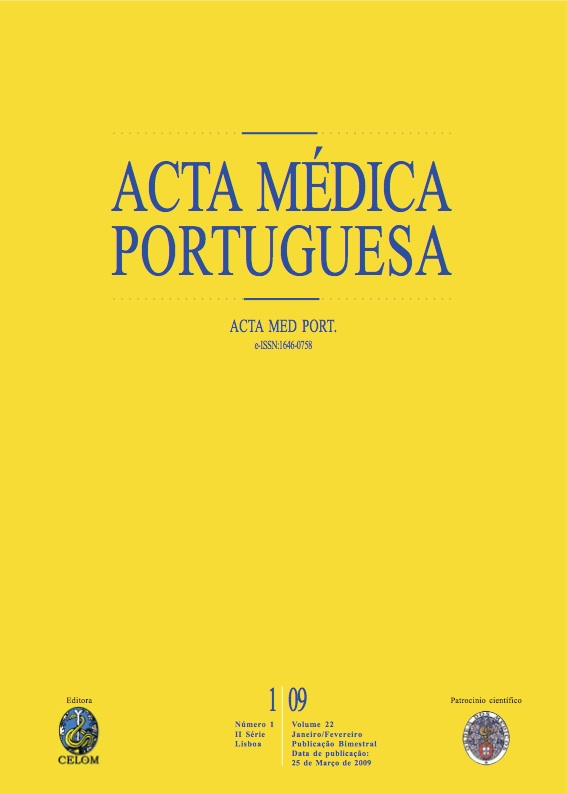Relação entre neurocognição e qualidade de vida em pessoas com esquizofrenia.
DOI:
https://doi.org/10.20344/amp.1682Resumo
Neurocognitive deficits constitute an important and significant characteristic of Schizophrenia. Recent investigations tried to establish a causal relationship between neurocognitive deficits and functional outcomes. However, in studies that used quality of life as the primary functional variable, mixed results were found. In some studies associations with neurocognition were strong, but in others, the associations were week or inexistent. The purpose of this study was to identify neurocognitive constructs that seems to be differential predictors of distinct quality of life dimensions. Sample consisted of 37 individuals diagnosed with Schizophrenia. All subjects were assessed with a battery of neurocognitive tests. For the assessment of quality of life we used the WHOQOL--Bref Portuguese Version. We performed correlational analysis and stepwise multiple regression analysis, in order to determine predictive models of quality of life. There were found significant correlations between most of the neurocognitive constructs and quality of life. Predictive models explained 21% to 49% of the variance in the domains of quality of life that we considered. Significant neurocognitive predictors were the following: for the Physical domain, the executive functions; for the Psychological and Social Relations domains, attention and visual-spatial organization; for the Environmental domain, the executive functions and attention. These results highlight the significance of basic neurocognitive functions to the determination of quality of life outcomes in persons with Schizophrenia, especially the functions related to the ability to adapt to changes and to the environmental feedback, the ability to keep focused and attentive, and the aptitude to correctly organize perceptual data.Downloads
Downloads
Como Citar
Edição
Secção
Licença
Todos os artigos publicados na AMP são de acesso aberto e cumprem os requisitos das agências de financiamento ou instituições académicas. Relativamente à utilização por terceiros a AMP rege-se pelos termos da licença Creative Commons ‘Atribuição – Uso Não-Comercial – (CC-BY-NC)’.
É da responsabilidade do autor obter permissão para reproduzir figuras, tabelas, etc., de outras publicações. Após a aceitação de um artigo, os autores serão convidados a preencher uma “Declaração de Responsabilidade Autoral e Partilha de Direitos de Autor “(http://www.actamedicaportuguesa.com/info/AMP-NormasPublicacao.pdf) e a “Declaração de Potenciais Conflitos de Interesse” (http://www.icmje.org/conflicts-of-interest) do ICMJE. Será enviado um e-mail ao autor correspondente, confirmando a receção do manuscrito.
Após a publicação, os autores ficam autorizados a disponibilizar os seus artigos em repositórios das suas instituições de origem, desde que mencionem sempre onde foram publicados e de acordo com a licença Creative Commons









